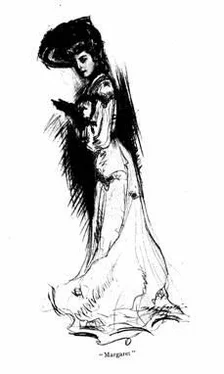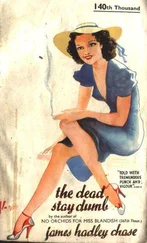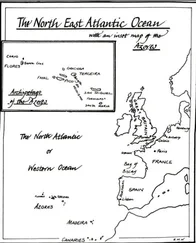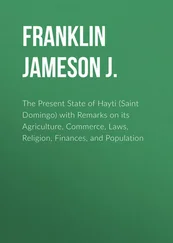James Cabell - The Eagle's Shadow
Здесь есть возможность читать онлайн «James Cabell - The Eagle's Shadow» весь текст электронной книги совершенно бесплатно (целиком полную версию без сокращений). В некоторых случаях можно слушать аудио, скачать через торрент в формате fb2 и присутствует краткое содержание. Жанр: Современная проза, на английском языке. Описание произведения, (предисловие) а так же отзывы посетителей доступны на портале библиотеки ЛибКат.
- Название:The Eagle's Shadow
- Автор:
- Жанр:
- Год:неизвестен
- ISBN:нет данных
- Рейтинг книги:4 / 5. Голосов: 1
-
Избранное:Добавить в избранное
- Отзывы:
-
Ваша оценка:
- 80
- 1
- 2
- 3
- 4
- 5
The Eagle's Shadow: краткое содержание, описание и аннотация
Предлагаем к чтению аннотацию, описание, краткое содержание или предисловие (зависит от того, что написал сам автор книги «The Eagle's Shadow»). Если вы не нашли необходимую информацию о книге — напишите в комментариях, мы постараемся отыскать её.
The Eagle's Shadow — читать онлайн бесплатно полную книгу (весь текст) целиком
Ниже представлен текст книги, разбитый по страницам. Система сохранения места последней прочитанной страницы, позволяет с удобством читать онлайн бесплатно книгу «The Eagle's Shadow», без необходимости каждый раз заново искать на чём Вы остановились. Поставьте закладку, и сможете в любой момент перейти на страницу, на которой закончили чтение.
Интервал:
Закладка:
So his eyes turned to Margaret, who had no eyes for him. She had forgotten his existence, with an utterness that verged on ostentation; and if it had been any one else Billy would have surmised she was in a temper. But that angel in a temper!—nonsense! And, oh, what eyes she had! and what lashes! and what hair!—and altogether, how adorable she was, and what a wonder the admiring gods hadn't snatched her up to Olympus long ago!
Thus far Mr. Woods.
But if Miss Hugonin was somewhat taciturn, her counsellors in divers schemes for benefiting the universe were in opulent vein. Billy heard them silently.
"I have spent the entire morning by the lake," Mr. Kennaston informed the party at large, "in company with a mocking-bird who was practising a new aria. It was a wonderful place; the trees were lisping verses to themselves, and the sky overhead was like a robin's egg in colour, and a faint wind was making tucks and ruches and pleats all over the water, quite as if the breezes had set up in business as mantua-makers. I fancy they thought they were working on a great sheet of blue silk, for it was very like that. And every once in a while a fish would leap and leave a splurge of bubble and foam behind that you would have sworn was an inserted lace medallion."
Mr. Kennaston, as you are doubtless aware, is the author of "The King's Quest" and other volumes of verse. He is a full-bodied young man, with hair of no particular shade; and if his green eyes are a little aged, his manner is very youthful. His voice in speaking is wonderfully pleasing, and he has a habit of cocking his head on one side, in a bird-like fashion.
"Indeed," Mr. Petheridge Jukesbury observed, "it is very true that God made the country and man made the town. A little more wine, please."
Mr. Jukesbury is a prominent worker in the cause of philanthropy and temperance. He is ponderous and bland; and for the rest, he is president of the Society for the Suppression of Nicotine and the Nude, vice-president of the Anti-Inebriation League, secretary of the Incorporated Brotherhood of Benevolence, and the bearer of divers similar honours.
"I am never really happy in the country," Mrs. Saumarez dissented; "it reminds me so constantly of our rural drama. I am always afraid the quartette may come on and sing something."
Kathleen Eppes Saumarez, as I hope you do not need to be told, is the well-known lecturer before women's clubs, and the author of many sympathetic stories of Nature and animal life of the kind that have had such a vogue of late. There was always an indefinable air of pathos about her; as Hunston Wyke put it, one felt, somehow, that her mother had been of a domineering disposition, and that she took after her father.
"Ah, dear lady," Mr. Kennaston cried, playfully, "you, like many of us, have become an alien to Nature in your quest of a mere Earthly Paradox. Epigrams are all very well, but I fancy there is more happiness to be derived from a single impulse from a vernal wood than from a whole problem-play of smart sayings. So few of us are natural," Mr. Kennaston complained, with a dulcet sigh; "we are too sophisticated. Our very speech lacks the tang of outdoor life. Why should we not love Nature—the great mother, who is, I grant you, the necessity of various useful inventions, in her angry moods, but who, in her kindly moments—" He paused, with a wry face. "I beg your pardon," said he, "but I believe I've caught rheumatism lying by that confounded pond."
Mrs. Saumarez rallied the poet, with a pale smile. "That comes of communing with Nature," she reminded him; "and it serves you rightly, for natural communications corrupt good epigrams. I prefer Nature with wide margins and uncut leaves," she spoke, in her best platform manner. "Art should be an expurgated edition of Nature, with all the unpleasant parts left out. And I am sure," Mrs. Saumarez added, handsomely, and clinching her argument, "that Mr. Kennaston gives us much better sunsets in his poems than I have ever seen in the west."
He acknowledged this with a bow.
"Not sherry—claret, if you please," said Mr. Jukesbury. "Art should be an expurgated edition of Nature," he repeated, with a suave chuckle. "Do you know, I consider that admirably put, Mrs. Saumarez—admirably, upon my word. Ah, if our latter-day writers would only take that saying to heart! We do not need to be told of the vice and corruption prevalent, I am sorry to say, among the very best people; what we really need is continually to be reminded of the fact that pure hearts and homes and happy faces are to be found to-day alike in the palatial residences of the wealthy and in the humbler homes of those less abundantly favoured by Fortune, and yet dwelling together in harmony and Christian resignation and—er—comparatively moderate circumstances."
"Surely," Mrs. Saumarez protested, "art has nothing to do with morality. Art is a process. You see a thing in a certain way; you make your reader see it in the same way—or try to. If you succeed, the result is art. If you fail, it may be the book of the year."
"Enduring immortality and—ah—the patronage of the reading public," Mr. Jukesbury placidly insisted, "will be awarded, in the end, only to those who dwell upon the true, the beautiful, and the—er —respectable. Art must cheer; it must be optimistic and edifying and—ah—suitable for young persons; it must have an uplift, a leaven of righteousness, a—er—a sort of moral baking-powder. It must utterly eschew the—ah—unpleasant and repugnant details of life. It is, if I may so express myself, not at home in the ménage à trois or—er—the representation of the nude. Yes, another glass of claret, if you please."
"I quite agree with you," said Mrs. Haggage, in her deep voice. Sarah Ellen Haggage is, of course, the well-known author of "Child-Labour in the South," and "The Down-Trodden Afro-American," and other notable contributions to literature. She is, also, the "Madame President" both of the Society for the Betterment of Civic Government and Sewerage, and of the Ladies' League for the Edification of the Impecunious.
"And I am glad to see," Mrs. Haggage presently went on, "that the literature of the day is so largely beginning to chronicle the sayings and doings of the labouring classes. The virtues of the humble must be admitted in spite of their dissolute and unhygienic tendencies. Yes,"
Mrs. Haggage added, meditatively, "our literature is undoubtedly acquiring a more elevated tone; at last we are shaking off the scintillant and unwholesome influence of the French."
"Ah, the French!" sighed Mr. Kennaston; "a people who think depravity the soul of wit! Their art is mere artfulness. They care nothing for Nature."
"No," Mrs. Haggage assented; "they prefer nastiness. All French books are immoral. I ran across one the other day that was simply hideously indecent—unfit for a modest woman to read. And I can assure you that none of its author's other books are any better. I purchased the entire set at once and read them carefully, in order to make sure that I was perfectly justified in warning my working-girls' classes against them. I wish to misjudge no man—not even a member of a nation notoriously devoted to absinthe and illicit relations."
She breathed heavily, and looked at Mr. Woods as if, somehow, he was responsible. Then she gave the name of the book to Petheridge Jukesbury. He wished to have it placed on the Index Expurgatorius of the Brotherhood of Benevolence, he said.
"Dear, dear," Felix Kennaston sighed, as Mr. Jukesbury made a note of it; "you are all so practical. You perceive an evil and proceed at once, in your common-sense way, to crush it, to stamp it out. Now, I can merely lament certain unfortunate tendencies of the age; I am quite unable to contend against them. Do you know," Mr. Kenneston continued gaily, as he trifled with a bunch of grapes, "I feel horribly out-of-place among you? Here is Mrs. Saumarez creating an epidemic of useful and improving knowledge throughout the country, by means of her charming lectures. Here is Mrs. Haggage, the mainspring, if I may say so, of any number of educational and philanthropic alarm clocks which will some day rouse the sleeping public from its lethargy. And here is my friend Jukesbury, whose eloquent pleas for a higher life have turned so many workmen from gin and improvidence, and which in a printed form are disseminated even in such remote regions as Africa, where I am told they have produced the most satisfactory results upon the unsophisticated but polygamous monarchs of that continent. And here, above all, is Miss Hugonin, utilising the vast power of money—which I am credibly informed is a very good thing to have, though I cannot pretend to speak from experience—and casting whole bakeryfuls of bread upon the waters of charity. And here am I, the idle singer of an empty day—a mere drone in this hive of philanthropic bees! Dear, dear," said Mr. Kennaston, enviously, "what a thing it is to be practical!" And he laughed toward Margaret, in his whimsical way.
Читать дальшеИнтервал:
Закладка:
Похожие книги на «The Eagle's Shadow»
Представляем Вашему вниманию похожие книги на «The Eagle's Shadow» списком для выбора. Мы отобрали схожую по названию и смыслу литературу в надежде предоставить читателям больше вариантов отыскать новые, интересные, ещё непрочитанные произведения.
Обсуждение, отзывы о книге «The Eagle's Shadow» и просто собственные мнения читателей. Оставьте ваши комментарии, напишите, что Вы думаете о произведении, его смысле или главных героях. Укажите что конкретно понравилось, а что нет, и почему Вы так считаете.







